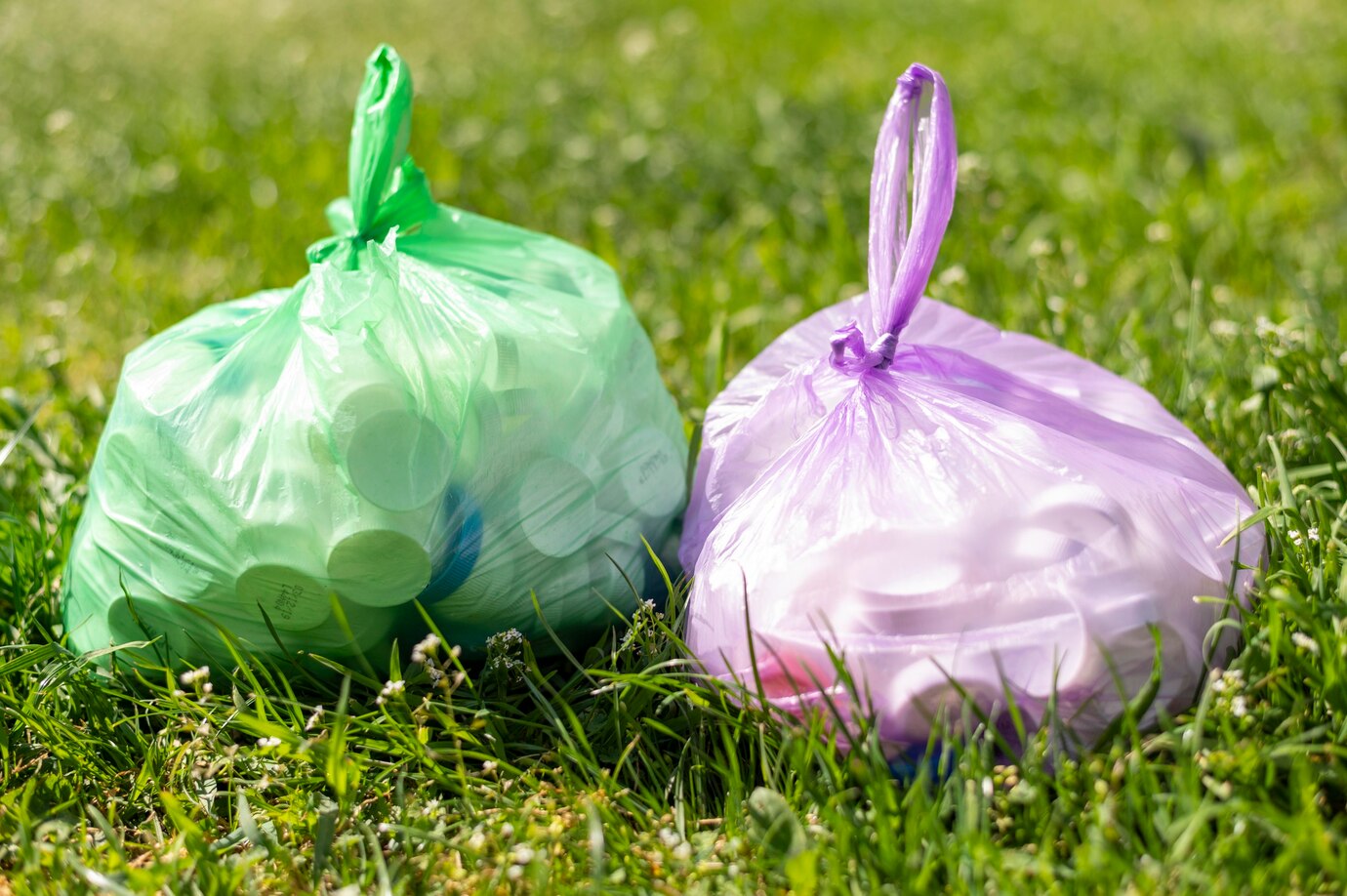In our ongoing quest for a healthier planet, our choices at home play a pivotal role, especially when it comes to waste management. One of the most straightforward yet impactful shifts we can make is transitioning from traditional plastic trash bags to biodegradable options. These eco-friendly alternatives are designed not just to handle our household waste but also to help reduce our environmental footprint.
Biodegradable garbage bags break down much faster than their plastic counterparts, turning into compost that can nourish the earth instead of lingering in landfills for centuries. By choosing these sustainable products, we not only help reduce the massive amounts of plastic pollution but also support a cycle of natural decomposition, which is crucial for maintaining ecological balance.
We understand that making such changes might seem daunting at first. However, by learning what biodegradable garbage bags are and exploring their environmental benefits, you will see that integrating them into your daily routine is not only simple but also vastly beneficial for our environment. Let's delve into what these bags offer and how easily we can incorporate them into our efforts to maintain clean and green homes.
What Are Biodegradable Garbage Bags?
Biodegradable garbage bags are a key component of eco-friendly household cleaning that we all can embrace. Unlike traditional plastic bags, which can take hundreds of years to break down in landfills, biodegradable bags are designed to decompose quickly under the right conditions. They are made from a variety of materials, including plant-based items, such as cornstarch and other organic compounds, that allow them to break down naturally.
This swift decomposing makes biodegradable bags a preferred choice for those of us looking to reduce our environmental footprint. They offer a practical solution to handle waste without adding to the planet's growing plastic pollution problem. By incorporating these bags into our daily routines, we contribute to a cycle of sustainability that supports a healthier environment for future generations.
The Environmental Benefits of Using Biodegradable Bags for Waste Reduction
Opting for biodegradable bags over synthetic plastic bags carries significant environmental benefits. First and foremost, biodegradable bags decrease the amount of waste that resides in landfills. Since these materials are designed to break down quickly, they reduce the buildup of non-decomposable waste that contributes heavily to land pollution.
In addition, the process of producing biodegradable bags often has a lower carbon footprint compared to the manufacture of standard plastic bags. The materials used in biodegradable bags typically come from renewable resources. This sustainable approach not only conserves natural resources but also reduces greenhouse gas emissions, as the biodegradation process emits less pollution into the atmosphere. By integrating biodegradable bags into our waste management routines, we actively participate in reducing environmental impact and support broader efforts to combat climate change and maintain biodiversity.
Practical Tips for Integrating Biodegradable Bags Into Your Routine
Integrating biodegradable bags into our daily routine is simpler than we might think, and it starts with making small, conscious decisions. First, always opt for biodegradable bags when shopping for garbage bags. Keep a stash at home where it's easy to grab one whenever you need it, like under the kitchen sink or in the garage. Secondly, use these bags for all types of household waste needs, including in the bathroom, office, or during yard work, to ensure that you're consistently contributing to environmental sustainability.
Furthermore, we can educate our family and friends about the benefits of using biodegradable bags. Sharing knowledge increases awareness and can inspire others to make similar eco-friendly choices. Lastly, participate in local recycling or composting programs that accept biodegradable waste. This not only supports community-based environmental efforts but also guarantees that the bags fulfill their purpose of being eco-friendly by properly breaking down.
Choosing the Right Biodegradable Bag for Your Needs
When selecting the right biodegradable bag, it's crucial to consider both the size and the specific material used in the bag. Look for bags labeled as "compostable" or those that meet ASTM D6400 standards for compostability in industrial facilities. These bags are designed to break down in about 90 days in commercial composting conditions, making them a reliable choice.
Additionally, consider the size and load capacity of the bags based on your needs. For kitchen use, ensure the bags are strong enough to handle organic waste without leaking. For yard waste, choose larger, more durable bags that can hold leaves and grass without tearing. By selecting the appropriate biodegradable bag for different uses around the house, we maximize efficiency while supporting the environment.
Conclusion
Choosing the right biodegradable garbage bags is about more than just helping the environment. It's about making a conscious choice to be part of a sustainable solution that benefits our planet. By integrating these eco-friendly products into our daily routines, we take significant steps towards reducing our ecological footprint. At Plastno, we are proud to lead by example, offering a range of biodegradable and compostable bags suited for all your household needs.
Embrace a greener lifestyle with Plastno's biodegradable bags, and join us in our mission to make the world a cleaner, safer place for future generations. Choose sustainability; choose Plastno. Together, let's transform the norm and advocate for a healthier planet.






Share:
How to Clean Without Plastic and Toxic Chemicals
Why Compostable Trash Bags Are Essential for Environmentally Conscious Households